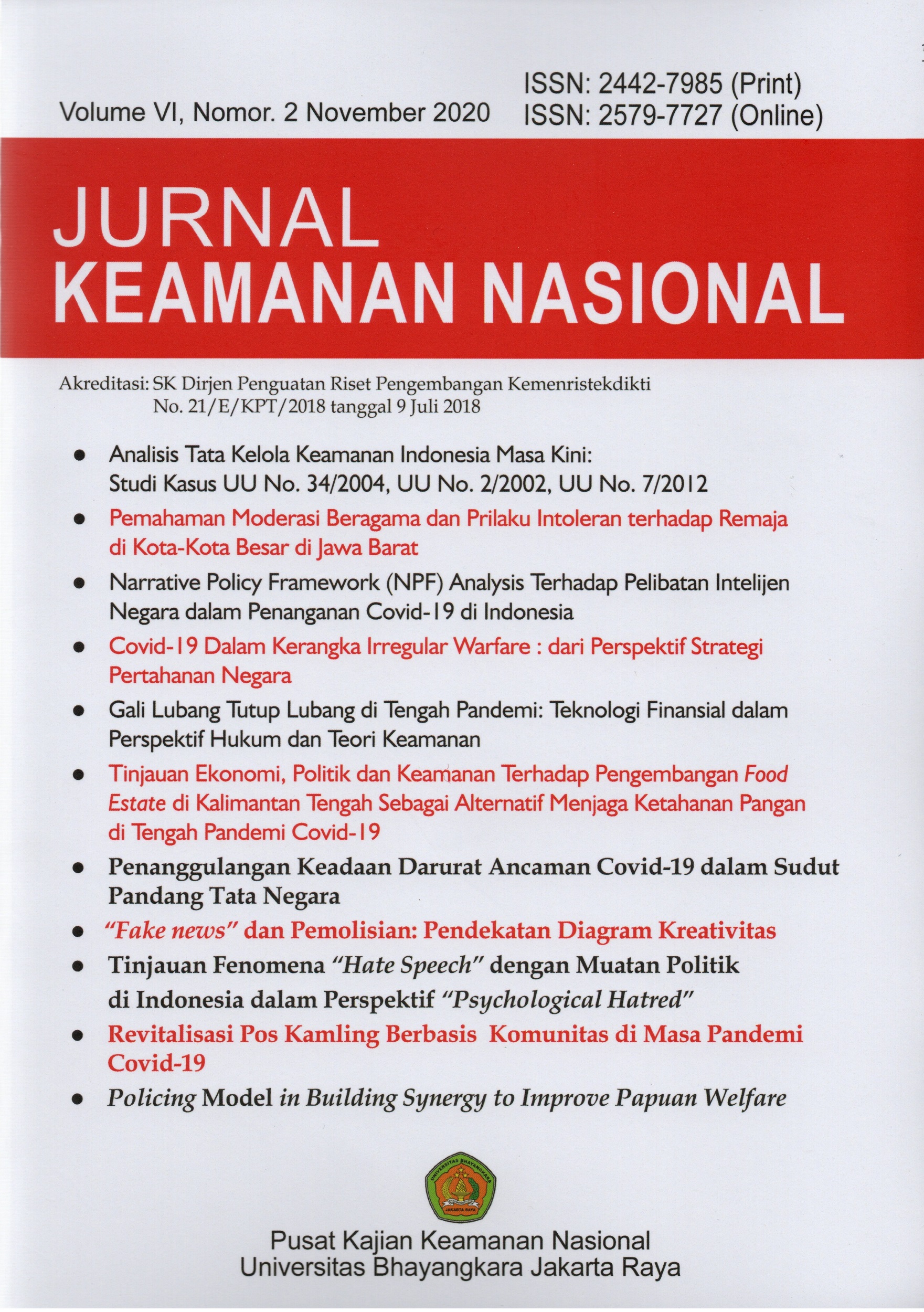Narrative Policy Framework (NPF) Analysis Terhadap Pelibatan Intelijen Negara dalam Penanganan Covid-19 di Indonesia
Keywords:
BIN, state intelligence agency, Covid-19, policy narrativAbstract
The policy of involving and taking steps by the State Intelligence Agency (BIN) as a secret agency in handling COVID-19 is deemed incompatible with its main duties and functions. The polemic arose when it was feared that this involvement could potentially lead to abuse of authority and the practice of reducing BIN to the role of other, more credible institutions in handling COVID-19. Through the analysis of the Narrative Policy Framework (NPF) on the existing literature review, this study will confront the policy counter-narrative with the dominant narrative used, namely that COVID-19 is a national security threat which is the responsibility of BIN as the first line of national defense. The metanarrative results in this study explain that the difference in perceptions between the two narratives originates from the trauma of intelligence practices in the past, which is faced with the dynamics of national security threats today and in the future.
Downloads

Downloads
Published
Issue
Section
License
Please read and understand the copyright terms for submissions to this journal.
Copyright Notice
The Jurnal Keamanan Nasional is under the Creative Commons Attribution 4.0 International (CC-BY 4.0) License, according to which:
1) Authors retain copyright and grant the journal the right to first publication, with the work simultaneously licensed under the Creative Commons Attribution (CC-BY 4.0) that allows the sharing of articles published with the acknowledgement of authorship and the initial publication in this journal.
2) The authors are authorized to make additional contracts separately for distribution of the version of the work published in this journal (for example, publication in an institutional repository or as a chapter of the book), as long as there is recognition of authorship and initial publication in this journal.
3) Authors are authorized and encouraged to publish and distribute their work online (for example, in institutional repositories or on their personal pages) at any time before or during the editorial process, as it increases the impact and reference of the published work.












